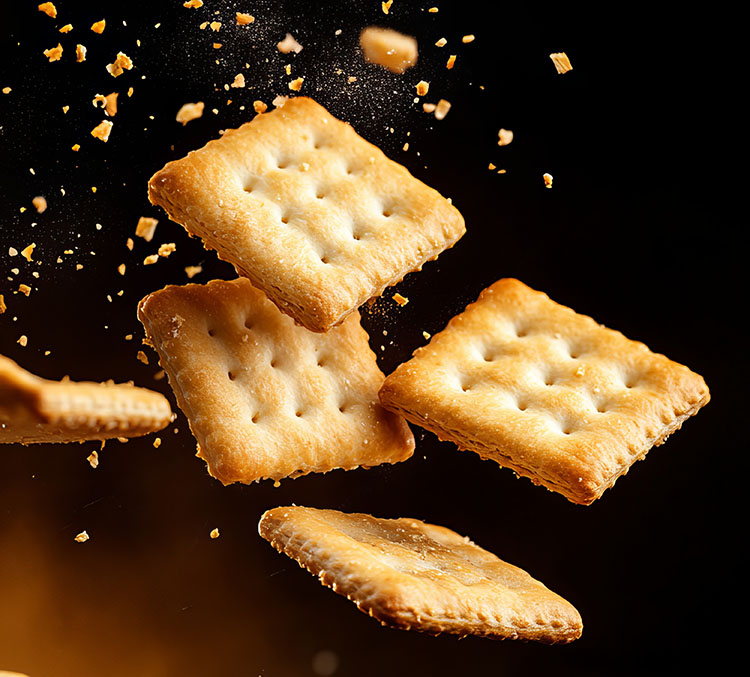
Two-stage mixing takes center stage
Two-stage batch mixing brings multiple advantages to industrial-scale baking. Two-stage batch mixing is especially suited to long-fermentation doughs, where structure and flavor are needed.
Two-stage batch mixing brings multiple advantages to industrial-scale baking. Two-stage batch mixing is especially suited to long-fermentation doughs, where structure and flavor are needed.
The Kaak DrieM sheeting lines are designed to optimize every step of the process for large-volume dough production. The newest update to the sheeting system can now enable easy access to the portioner for thorough, convenient cleaning and maintenance.
Chip Czulada embarked on a new role as the President of Reading Bakery Systems (RBS) at the beginning of 2024. He shares with Baking+Biscuit International magazine his view on the first six months at the helm of the company where he has been working for over 20 years.
An entire fleet of iconic crackers built its consumer base on their open, flaky texture, which is produced by layering the dough. Reading Bakery Systems designed a new, 90-degree technology concept for the laminators manufacturing this dough.
Fully automating kneading and mixing is an ambitious endeavor, given the complexity of the process, and the diversity of raw ingredients.
ECD will bring its thermal profiling technology to iba in October. The handheld M.O.L.E.™ EV6 sets a new benchmark for thermal data loggers, delivering instantaneous data access and intuitive control – now with a full-color touchscreen display. In addition to the six-channel M.O.L.E. EV6, the company’s BreadOMETER™, CakeOMETER™, and OvenBALANCER™ sensors will be demonstrated at the stand.
The technology to support efficient, automated production of high-end, quality bread is here. The key is gentle dough handling.
ECD’s M.O.L.E.™ EV6 touchscreen thermal profiler is now commercially available, with shipments starting April 1. The interface is said to have a user-friendly, intuitive design engineered to save baking professionals time, simplify data viewing and analysis, and improve productivity.
Snack manufacturers have can find flexibility in a new automated solution to make pita chips, developed by Reading Bakery Systems (RBS).
Scoring is a process that requires skill and shows the baker’s experience when done manually. Alternatively, as labor is becoming harder to find (and then keep), robots can efficiently take over the task; they will never need to stop and will perform constantly over time.
The Thomas L. Green brand of equipment from Reading Bakery Systems has been a partner to the biscuit, cookie and cracker industry for over 120 years.
Kaak is working to improve the future of iBake Care and to offer additional benefits to customers by researching new technologies. One such technology is called “Dough Sense” that would provide real-time feedback on dough quality.

